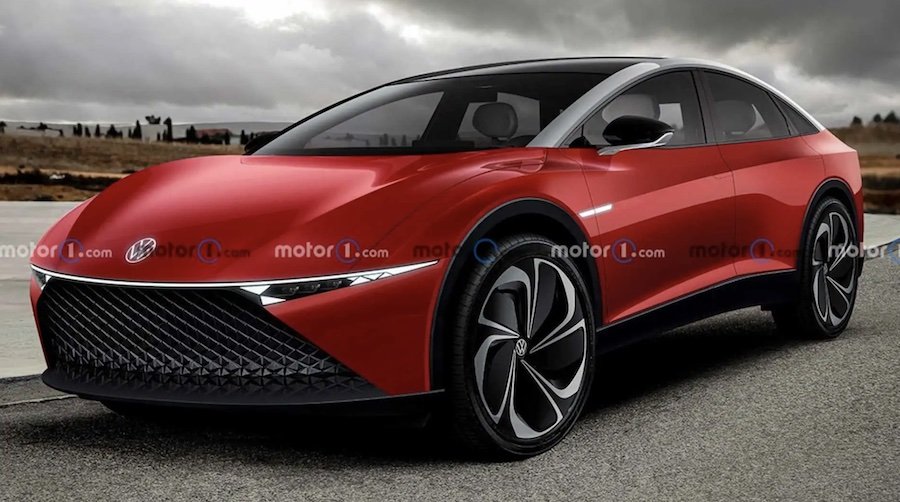Volkswagen Trinity Rendered As Sleek Electric Sedan With Gaping Face

Volkswagen introduced Project Trinity two years ago next month. The automaker said the electric sedan would “set new standards in terms of range, charging speed, and digitization,” and that it’d launch in 2026. The latest reports indicate the automaker has delayed its debut until 2030, but there’s a lot we already know about the technology and how it’ll look.
A new rendering from Motor.es predicts what the EV could look when it arrives as late as the end of the decade. It’s expected to be similar in size to the VW ID.4, and teaser images preview a sedan with a rounded, aerodynamic front end, a raked windshield, and a sweeping roof that ends in a small lip spoiler at the truncated rear end.
The rendering retains these shapes but looks more aggressive than the automaker’s current lineup. The EV has slim headlights connected by a thin LED bar separating the hood and the illuminated VW logo from the gaping grille. Along the side, a character line from the headlights wraps around the fender and extends through the wheel well and down the side, arching slightly toward the rear fender.
Trinity is supposed to arrive offering 700 kilometers (435 miles) of range on the WLPT, riding on VW Group’s new Scalable Systems Platform. When Volkswagen announced it in 2021, it set 2026 as its launch date. However, at the end of 2022, a report surfaced alleging that the newly appointed CEO, Oliver Blume, decided to postpone it until 2030 due to software issues. If true, it’s a noticeable setback for the company as more automakers continue to enter the growing EV segment.
Trinity allegedly being pushed back wouldn’t be the first time software issues delayed a car’s launch. Due to software issues, Porsche delayed the electric Macan’s launch by a year. EVs and tech-packed internal-combustion cars need well-made software to run the numerous complex systems built into them – from battery management to heated seat subscriptions.
The EV is supposed to replace VW’s ID family of electric models, ushering in its next-generation endeavors. Those likely include autonomous driving technology, more safety features, and, more than likely, even more subscription services and paywalled features.
Related News


